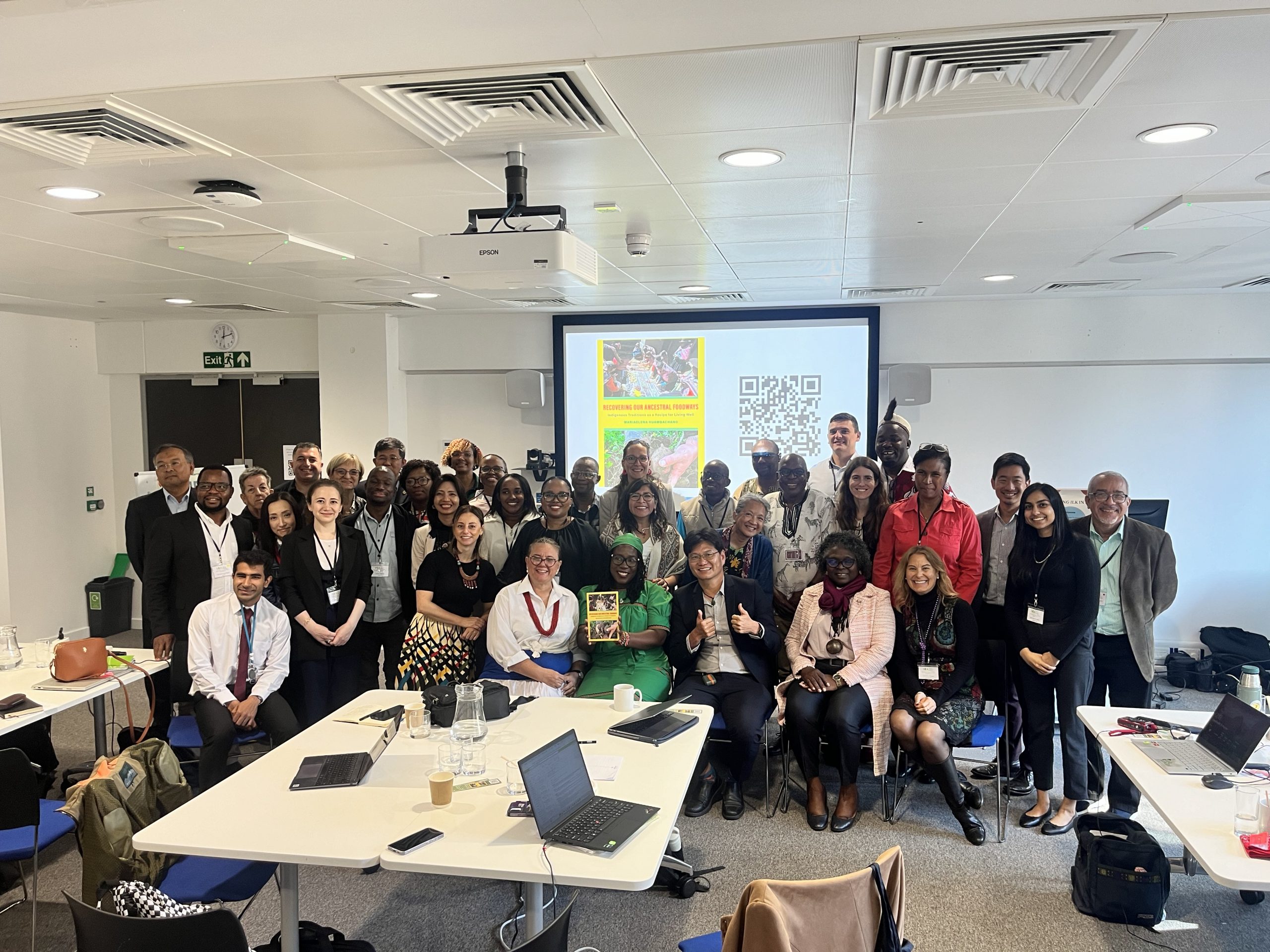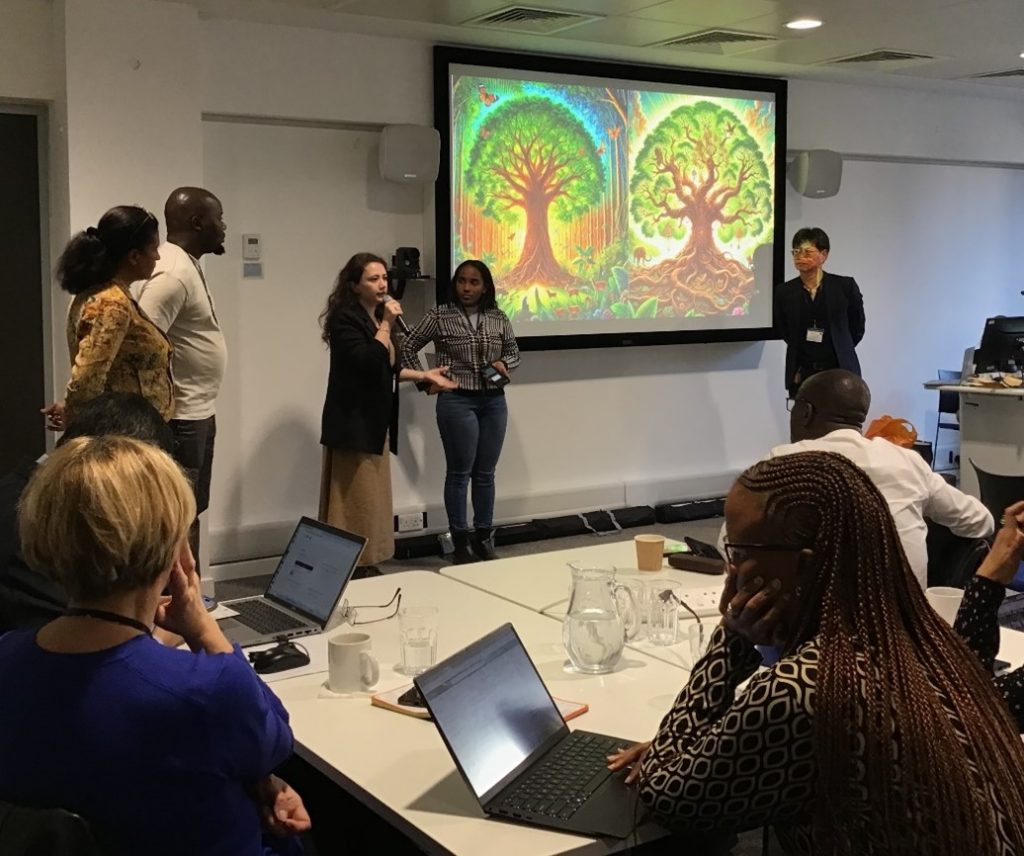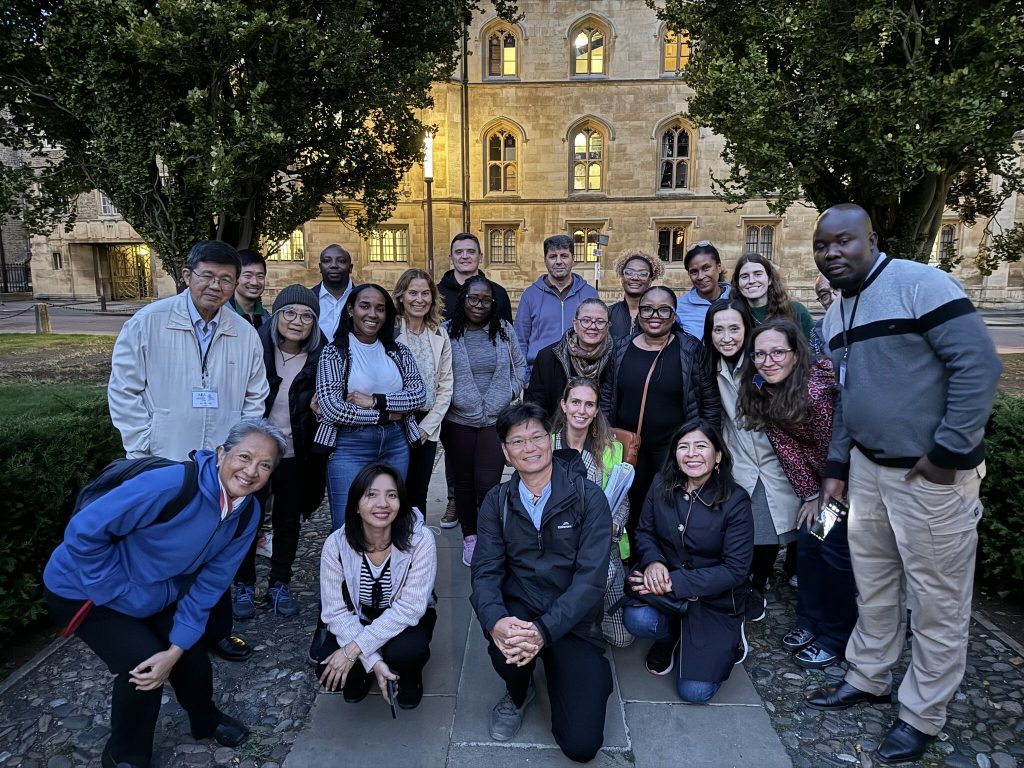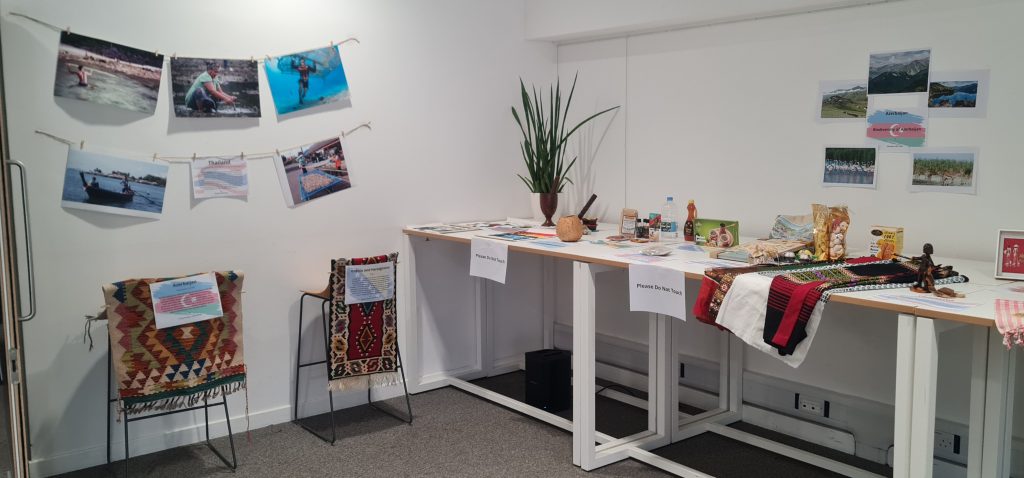News
Outcomes of the NEA Initiative’s 2024 Annual Workshop

Story | Nov 2024
UNEP-WCMC’s National Ecosystem Assessment (NEA) Initiative hosted its annual global capacity-building workshop in Cambridge, UK from 17th - 20th September 2024. The event brought together representatives from partner countries, Indigenous and local knowledge holders, UNDP, UNESCO, and other technical experts.
The workshop served as a platform for sharing lessons learned and exchanging knowledge on best practices in national ecosystem assessments. It brought together 29 representatives from Azerbaijan, Bosnia and Herzegovina, Botswana, Cambodia, Cameroon, Colombia, the Dominican Republic, Grenada, Malawi, and Thailand. Participants had the opportunity to learn about the progress and achievements of national ecosystem assessments, while also showcasing their own accomplishments, experiences, and progress.
A major outcome of the workshop was the identification of specific capacity development needs for participating countries. For example, the Dominican Republic and Thailand recognised the need to strengthen their capacities and resources to better integrate media and communications into their national ecosystem assessments, particularly in updating and maintaining their project websites. Thailand’s National Ecosystem Assessment team also expressed the need for support in identifying effective strategies to communicate assessment results to various stakeholders within the country. UNEP-WCMC will support the countries currently developing national ecosystem assessments to develop a roadmap to address their capacity development needs. This roadmap will guide national implementing organisations in their efforts and contribute to strengthening their capacities and skills.
In addition, the workshop facilitated the dissemination of key tools developed by UNEP-WCMC and its partners to support the national ecosystem assessment process. Participants highly valued a presentation on "writing with impact," which is essential for all stages of the national ecosystem assessment process and was a key component of the expert training provided. Other training sessions included the use of assessment findings, incorporating Indigenous and local knowledge in scenario building and valuation for national ecosystem assessments, as well as training on communications, stakeholder engagement, citation, and referencing.

The workshop underscores a significant leap in the NEA Initiative’s continuous efforts to foster deeper partnerships and connections with and among partners. It reinforces the Initiative’s support for countries’ encouraging progress in spearheading the national ecosystem assessment process. “The only way to help countries conducting their national ecosystem assessments is by working directly with the countries – and that is what UNEP-WCMC is doing through the NEA Initiative. This workshop was very well organised, and everyone felt free to express themselves,” said Ms. Senka Barudanovic, Project Coordinator for Bosnia and Herzegovina National Ecosystem Assessment and Chair of the SBSTTA Bureau of the Convention on Biological Diversity.
The event was organised by the NEA Initiative at UNEP-WCMC and delivered in partnership with UNDP and UNESCO, under the Biodiversity and Ecosystems Services Network (BES-Net). We extend our sincere gratitude and appreciation to the International Climate Initiative of the German Federal Ministry for the Environment, Nature Conservation, Nuclear Safety and Consumer Protection for the financial support.
All the resources and presentations from the workshop are available here.
Strengthening a diverse community of practice around national ecosystem assessments

Reflecting on over 20-years of national ecosystem assessments, UNEP-WCMC’s Director, Neville Ash, in his opening remarks, highlighted the increasing diversity of participation in the assessment process. “What I think has changed the most in the last 20 years is at that time it was a group of scientists from different universities that came together”. “Now we have much stronger engagement from governments in all the assessments that have been undertaken. And as we look around the room, we see a great diversity of participation from government ministries, academic institutions and others,” he said.
The workshop was a blend of learning and cultural exchange. Through insightful sessions and conversations with the participants, UNEP-WCMC and its partners gained new perspectives and understanding of diverse contexts in which a national ecosystem assessment takes place. An evening reception and cultural exhibition was organized at the David Attenborough Building in Cambridge to recognise and celebrate biodiversity and cultural heritage. This event highlighted the link between people and nature while facilitating networking opportunities between partner countries and experts from the broader scientific community, including organisations within the Cambridge Conservation Initiative. Participants had an opportunity to learn about the countries and cultures of fellow participants. They also learned about each other’s work, discussed knowledge gaps in national ecosystem assessments, and explored synergies to address biodiversity and conservation challenges.
According to Dr. Narumon Arunotai, expert on Indigenous and local knowledge from the Thailand National Ecosystem Assessment team, the evening also served to inspire. “It is not only about networking, but being inspired by how people get into conservation,” she said.

The annual workshop concluded with an enhanced understanding of the national ecosystem assessment process and a strengthened global community of practice around ecosystem assessments. Participants identified several key impacts achieved through the national ecosystem assessment process. One significant impact was raising public awareness about the importance and value of biodiversity and ecosystem services. Additionally, the process helped to incorporate diverse knowledge systems into policymaking, ensuring that various perspectives were considered. Another important outcome was the mainstreaming of biodiversity considerations across different sectors. Ecosystem assessments also played a role in resolving internal conflicts through scientific evidence. Moreover, they have fostered engagement among various stakeholders in environmental discussions and strengthened national biodiversity platforms and networks. These outcomes collectively highlight the multi-faceted benefits of national ecosystem assessments.
Additional Ecosystem Assessments
Partner countries recognize the importance of national ecosystem assessments and encourage others to join this vital initiative. Additional formal expressions of interest for support to develop national ecosystem assessments have been submitted to UNEP-WCMC by the governments of Bolivia, Trinidad and Tobago, and Uruguay. Informal expressions of interest have also been received from Turkey and Nigeria. The Organization of Eastern Caribbean States has expressed interest in developing a thematic sub-regional assessment. Meanwhile, Zambia and Zimbabwe have completed their scoping reports and are eager to conduct full national ecosystem assessments.
UNEP-WCMC will explore opportunities with partners to provide this support.
If you are interested in supporting the NEA Initiative, please contact Juanita Chaves, Senior Programme Officer at UNEP-WCMC, juanita.chaves@unep-wcmc.org
Learn more about the NEA Initiative: https://www.ecosystemassessments.net/
Have a query?
Contact us
communications@unep-wcmc.org
